BLOG SERIES LOOKS AT DE PALMA & DUMAS BOOK
AND LEADS RYAN HOLT TO EXAMINE HOW 'OBSESSION' VEERS FROM 'VERTIGO'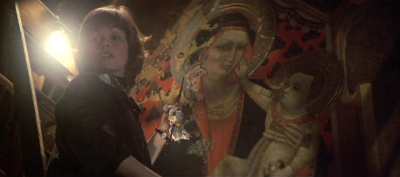
Thanks to Christian for pointing us to a new series that began last week at
Filmwell, in which
Ryan Holt discusses
Brian De Palma's cinema and
Chris Dumas's recent book
Un-American Psycho.
Dumas has admitted the error of dismissing De Palma's
Obsession in his book as a "work-for-hire," and of course, it is to be expected that many reading the book as it currently exists will find serious fault with this stumbling block, as did
Adrian Martin. Nevertheless, Holt sees that "Dumas’ conception of De Palma as a failed revolutionary who has embedded the narrative of that failure in his films leads to some compelling engagement with De Palma’s work." This leads Holt to examine
Obsession by looking at the "analogical structures" contained within the film, and contrasting it with those contained in
Alfred Hitchcock's
Vertigo. Doing so allows Holt to argue that
Obsession is part of the same line of political filmmaking "built on a Hitchockian skeleton" (to quote Dumas) that, according to Dumas, began with
Sisters.
Far from simply a mere attempted remake of
Vertigo, Holt shows how
Obsession veers from its source:
--------------------------------------------------"Critics have often remarked on the presence of analogues for the screen-spectator relationship in
Vertigo.
Vertigo’s protagonist, Scottie, can be seen as progressing from the role of 'film watcher' (his interaction in Gavin Elster’s fictional ghost story) to 'film director' (his obsessive recreation of Gavin Elster’s fictional ghost story). However, this understanding cannot be applied to
Obsession.
Obsession’s protagonist, Michael Courtland, never progresses from 'film watcher' to 'film director,' though he can at least be said to the former.
Obsession actually opens with a film of sorts: a title sequence montage of home photos that turns out to be the slide-show at Courtland’s wedding anniversary party. But this is really not a 'film' at all, as much as it is Courtland’s actual life; insofar as there is a 'film' Courtland watches, it is the intricately-conceived fantasy masterminded by his sinister business partner, Robert Lasalle.
This points to a key shift of narrative emphasis and structure from Vertigo to Obsession, the latter of which places significantly greater emphasis on the role of the manipulator. In Vertigo, the manipulator, Gavin Elster, fades from the picture around the halfway mark, but in Obsession, Lasalle remains a significant presence right up until the film’s climax. Obsession goes to great pains to emphasize Courtland’s business relationship with Lasalle, the details of which are explained in the opening minutes of the film and ultimately provide the key motivation for Lasalle’s villainy. De Palma further emphasizes Lasalle’s role in other ways, by directing John Lithgow to deliver an outrageous performance, accentuated by his outrageous Colonel Sanders appearance and accent—which puts the lie to Dumas claim that Obsession “may be said to be without humor” (59).
Lasalle may be built on the framework of Vertigo’s Gavin Elster, but in the way Obsession emphasizes his role as a devilish business partner, he seems closer to Phantom of the Paradise’s Swan, a manipulative businessman whose greed leaves no room for innocence. Swan and Lasalle both relentlessly seek to exploit the naïve in pursuit of their own interests. Take the Lasalle/Courtland confrontation scene, which has no precedent or parallel in Vertigo. Vertigo’s Scottie uncovers the scheme by himself, proceeding to very carefully deduce every feature and aspect of the plot, and takes his aggression out on Judy, not on Elster, who has since vanished from the picture. In Obsession, Lasalle reveals the plot to Courtland—Courtland is so desperate to believe that his wife has returned to him that he ignores all warnings and signs to the contrary—and taunts Courtland about his privileging of romanticism over financial gain. Like Phantom’s Winslow Leach, Courtland turns violent, murdering his manipulator.
Of course, the scheme hinges on romance, and once again we find substantial differences between the leading ladies in Vertigo and Obsession. Vertigo’s Judy/Madeleine remains defined by Scottie’s perception of her; she exists in the film only in relationship to Scottie. Obsession breaks away from this—leading Dumas to proclaim that Obsession fails locate 'the central theoretical issue in Vertigo (that la femme n’existe pas)' (59). But he does not consider the significance of this break, the shift from 'the woman does not exist' to 'the woman exists, but she is not who you think she is, and she is also a victim.' Amy/Sandra, Michael’s daughter who pretends to be his reincarnated wife, shares Michael’s tragedy, but from a different vantage point, and has become obsessed with her father’s failure and absence, and therefore mirrors Courtland in a way that Madeleine/Judy could never mirror Scottie. The love story of Obsession is the story of two damaged, exploited people, each playing a part in Lasalle’s scheme, never completely aware of their shared relationship with one another until the finale.
That final scene proves to be Obsession’s master-stroke, a brilliant revision of Vertigo which collapses reunion and loss into a single event. Where Vertigo concludes with a repetition of death, a brutal, devastating loss and a literal gaze into the abyss, in Obsession, the abyss is present in the reunion. Father and daughter are reunited at last, but what they have gone through has hopelessly shattered their relationship to one another and their sense of self (in the original cut of the film, their relationship had been demolished by consummated incest; concerns about censorship led to the transformation of their consummation of marriage into an ambiguous dream sequence, leaving incestuous overtones without sexual consummation). The camera whirls around them, in the same move from Vertigo’s famous 'reunion' sequence—but here, the camera is manic, spiraling out of control as Amy endlessly mutters 'daddy, daddy' and Courtland moves from shocked realization to mad laughter."
-----------------------------------------------------The second essay in the De Palma/Dumas series,
De Palmian Dissonance, was posted yesterday. In it, Holt examines De Palma's strong urge to expose the lie in the illusion of cinema (most blatantly applied in
Body Double, according to Holt), and how this contrasts with De Palma's love for pure cinema. "But what makes De Palma such a beguiling filmmaker," states Holt, "is that he isn’t just a trickster, but he is also a true-blue believer, which no film encapsulates quite like
Mission to Mars. What makes the much-maligned
Mission to Mars such an odd experience for those familiar with De Palma’s work is that it serves up standard Hollywood tropes and conventions without a hint of satire or parody. Instead,
Mission to Mars utilizes the Hollywood blockbuster format in an attempt to achieve a sense of awe, offering a paean to scientific achievement and human determination. The film climaxes with an audience analogue that is as notable as the one Dumas singles out in
Body Double: scientists come into contact with their creators through an extraterrestrial movie screen that plays out the history of the solar system and the birth of life on Earth. It’s humanity meeting God in a movie theater."
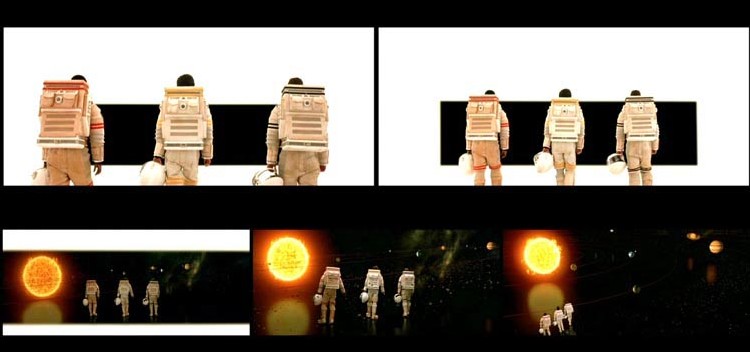






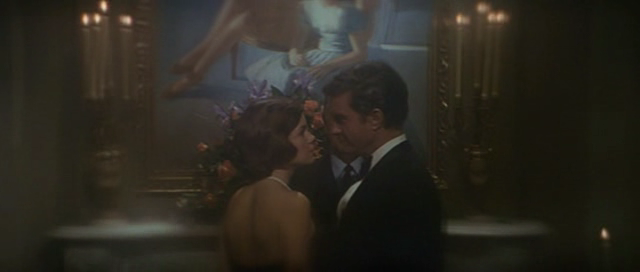
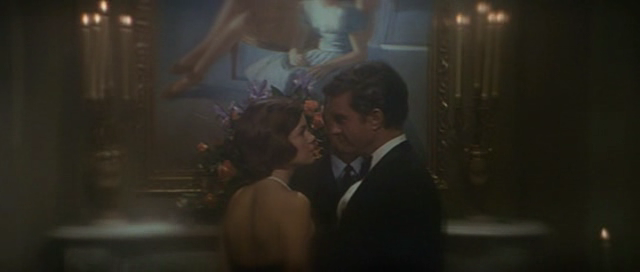
 Issue 90 of
Issue 90 of  Thanks to Christian for pointing us to a new series that began last week at
Thanks to Christian for pointing us to a new series that began last week at 
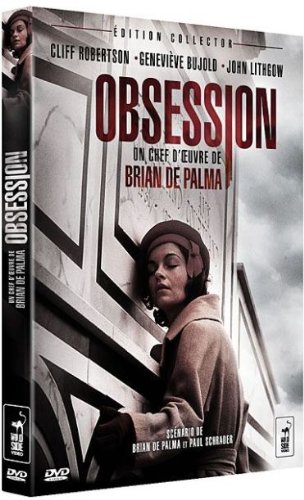 Wild Side Video released new
Wild Side Video released new 
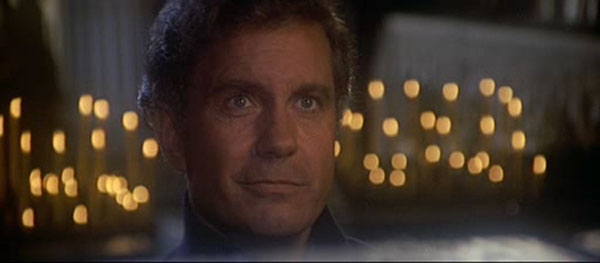
 News came late last night that Cliff Robertson died of natural causes Saturday (Sept 10), one day after his 88th birthday. Robertson, of course, portrayed the wealthy real estate developer Michael Courtland in Brian De Palma's Obsession, which was released 35 years ago in 1976. The film, written by Paul Schrader, was just released this past summer in a special region-free Blu-Ray edition from Arrow Video. In addition to winning an Oscar for his lead role in Charly in 1968, Robertson had a number of memorable roles in a long acting career. He played the CIA head in Sydney Pollack's conspiracy thriller Three Days Of The Condor, which was released a year before Obsession, and which provided much inspiration for De Palma's 1996 film Mission: Impossible (Condor has also been used as a comparison point for De Palma's upcoming project, The Key Man). In 1962, President John F. Kennedy personally chose Robertson to portray him in PT 109, which was based on Kennedy's experiences in WWII. More recently, Robertson became known as "Uncle Ben," the great beacon of responsibility in Sam Raimi's Spider-Man trilogy. Robertson also had run-ins with Batman, portraying the cowardly cowboy of crime, Shame, in several episodes of the TV series in 1966. In 1983, he portrayed Hugh Hefner in Bob Fosse's Star 80. Robertson also directed two films: J.W. Coop (1971, which Robertson also co-wrote and produced), has themes similar to that of De Palma's Carlito's Way. It stars Robertson as a cowboy who, after eight years in prison, finds that society is not what it used to be. The film is a western that takes place in the modern American rodeo circuit, and used footage from actual rodeo events. In 1980, Robertson directed The Pilot, a character study about a pilot who is also an alcoholic. Robert P. Davis adapted the screenplay from his own novel, and the film is noted for its realistic depictions of commercial flying.
News came late last night that Cliff Robertson died of natural causes Saturday (Sept 10), one day after his 88th birthday. Robertson, of course, portrayed the wealthy real estate developer Michael Courtland in Brian De Palma's Obsession, which was released 35 years ago in 1976. The film, written by Paul Schrader, was just released this past summer in a special region-free Blu-Ray edition from Arrow Video. In addition to winning an Oscar for his lead role in Charly in 1968, Robertson had a number of memorable roles in a long acting career. He played the CIA head in Sydney Pollack's conspiracy thriller Three Days Of The Condor, which was released a year before Obsession, and which provided much inspiration for De Palma's 1996 film Mission: Impossible (Condor has also been used as a comparison point for De Palma's upcoming project, The Key Man). In 1962, President John F. Kennedy personally chose Robertson to portray him in PT 109, which was based on Kennedy's experiences in WWII. More recently, Robertson became known as "Uncle Ben," the great beacon of responsibility in Sam Raimi's Spider-Man trilogy. Robertson also had run-ins with Batman, portraying the cowardly cowboy of crime, Shame, in several episodes of the TV series in 1966. In 1983, he portrayed Hugh Hefner in Bob Fosse's Star 80. Robertson also directed two films: J.W. Coop (1971, which Robertson also co-wrote and produced), has themes similar to that of De Palma's Carlito's Way. It stars Robertson as a cowboy who, after eight years in prison, finds that society is not what it used to be. The film is a western that takes place in the modern American rodeo circuit, and used footage from actual rodeo events. In 1980, Robertson directed The Pilot, a character study about a pilot who is also an alcoholic. Robert P. Davis adapted the screenplay from his own novel, and the film is noted for its realistic depictions of commercial flying.